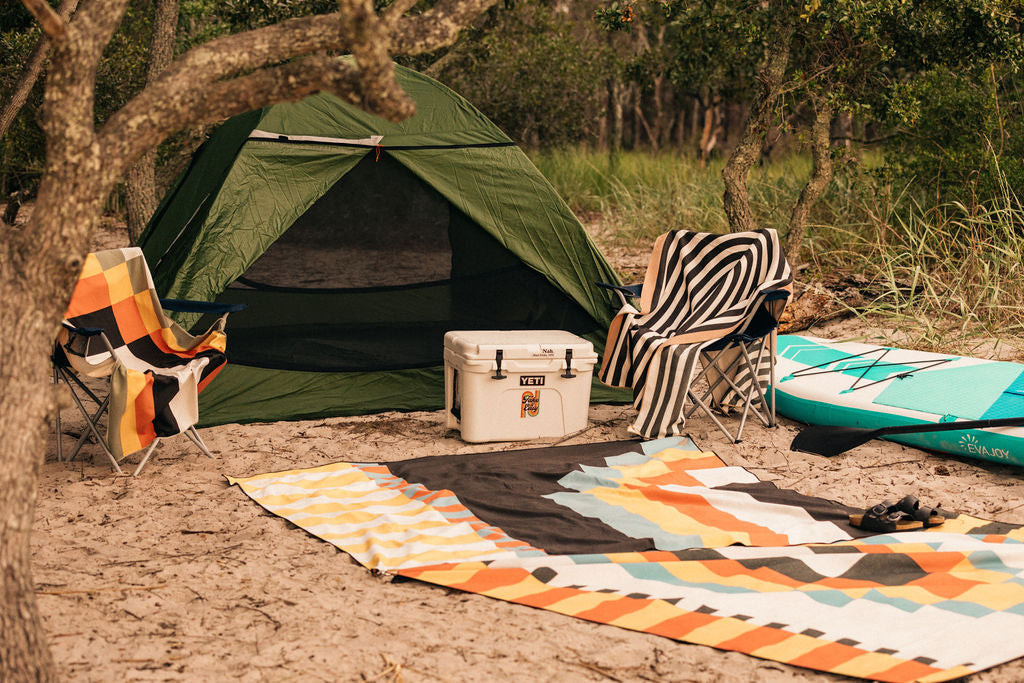A day at the beach is the perfect way to relax, soak up the sun, and enjoy the beauty of nature. However, it’s important to remember that our actions can have a significant impact on the environment, especially in such delicate ecosystems. Whether you’re a seasoned beachgoer or planning your first trip, here are some practical tips to help you have an eco-friendly beach day while reducing your environmental impact.
1. Choose Reusable Gear
One of the simplest ways to reduce your environmental footprint is to choose reusable gear instead of single-use items. Bring a reusable water bottle, food containers, and utensils to avoid the need for plastic alternatives. By eliminating single-use plastics, you can prevent harmful waste from ending up in the ocean.
KTTYHWK towels are another eco-friendly option to add to your beach gear. Made from 80% recycled materials, these towels not only offer high performance but also support sustainability by reducing waste. Plus, their compact design makes them easy to carry in a reusable beach bag.
2. Pack a Zero-Waste Picnic
Packing a zero-waste picnic is a great way to enjoy delicious snacks without contributing to the plastic pollution problem. Use beeswax wraps, glass containers, and cloth napkins to pack your food. Bring fresh, local produce and snacks that require little to no packaging. Remember to pack out what you pack in—leave no trace behind.
3. Use Reef-Safe Sunscreen
Many traditional sunscreens contain chemicals that can be harmful to marine life, particularly coral reefs. To protect these vital ecosystems, opt for reef-safe sunscreen made from natural ingredients that don’t harm the environment. Look for sunscreens free of oxybenzone and octinoxate, which are known to cause coral bleaching.
4. Respect Wildlife and Marine Life
The beach is home to a variety of wildlife and marine life that can be easily disturbed by human activities. Be mindful of your surroundings and avoid touching or disturbing animals, plants, or coral. Observe wildlife from a distance and never feed animals, as this can disrupt their natural behavior and diet.
When exploring tide pools or snorkeling, practice “leave no trace” principles by avoiding contact with coral and marine creatures. Use a camera or smartphone to capture memories without impacting the environment.
5. Reduce Your Carbon Footprint
Consider how you get to the beach. If possible, carpool, use public transportation, bike, or walk to reduce your carbon footprint. Choosing a beach closer to home can also minimize the environmental impact of travel. If you do drive, look for eco-friendly parking options and be mindful of fuel consumption.
Once at the beach, consider participating in activities that require minimal equipment or resources, such as swimming, beach volleyball, or simply relaxing with a good book.
6. Bring Your Own Trash Bag
Even if the beach provides trash cans, it’s a good idea to bring your own trash bag. This allows you to easily collect all your waste and dispose of it properly. If you notice litter around you, consider doing a quick beach cleanup by picking up any trash you see. Every small effort helps protect the environment and keeps the beach beautiful for everyone to enjoy.
7. Use Eco-Friendly Towels
Traditional towels can be bulky and made from materials that are not environmentally friendly. Instead, choose eco-friendly towels like KTTYHWK towels, which are designed with sustainability in mind. These towels are made from recycled materials, are quick-drying, and feature sand-free technology. Their lightweight and compact design makes them easy to pack, while their eco-conscious construction helps reduce your environmental impact.
8. Avoid Single-Use Plastics
Single-use plastics are one of the biggest contributors to ocean pollution. Avoid items like plastic bags, straws, and bottles, and opt for reusable alternatives instead. Bring a cloth bag for your belongings, a reusable water bottle, and a metal or bamboo straw if you need one. By making these simple swaps, you can help keep plastics out of the ocean and off the beach.
9. Educate Yourself and Others
Knowledge is power when it comes to protecting the environment. Take the time to educate yourself about the local ecosystem and the specific environmental challenges faced by the beach you’re visiting. Share what you’ve learned with friends and family to inspire them to make eco-friendly choices as well.
Consider participating in local beach cleanups or conservation efforts to help preserve the natural beauty of the beach. The more people who are aware of the importance of sustainability, the greater the collective impact we can make.
Having an eco-friendly beach day doesn’t mean sacrificing fun; it’s about making mindful choices that protect the environment and ensure that beaches remain beautiful for generations to come. By choosing reusable gear, packing a zero-waste picnic, using reef-safe sunscreen, respecting wildlife, reducing your carbon footprint, and using eco-friendly towels like KTTYHWK towels, you can enjoy a relaxing day at the beach while minimizing your impact on the planet.
Next time you head to the shore, remember these tips and take pride in knowing that you’re contributing to a healthier, more sustainable world. Enjoy your eco-friendly beach day!


